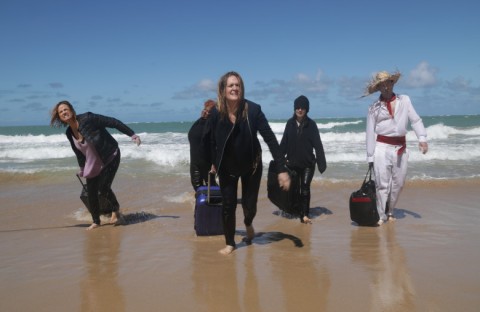
I’m a fan of late-night political comedian Samantha Bee, and not just for her sport jacket style and her knack for interviewing people whom other corporate media overlook. I love Samantha Bee because her TBS show Full Frontal calls me to confession, unexpectedly.
Take, for example, her special “The Great American* Puerto Rico (*It's Complicated),” which documents the failure of the United States to help our fellow citizens—who do not get a vote in U.S. elections—recover from Hurricane Maria. Bee and her staffers wash up on Puerto Rico’s beaches with an earnest white savior mission to lend a helping hand while reporting on the recovery progress six months post-hurricane.
I had to admit that much of what I knew about Puerto Rico hadn’t been updated since I memorized all of West Side Story in the seventh grade. Bee’s special asked me repeatedly, How could I be so ignorant?




